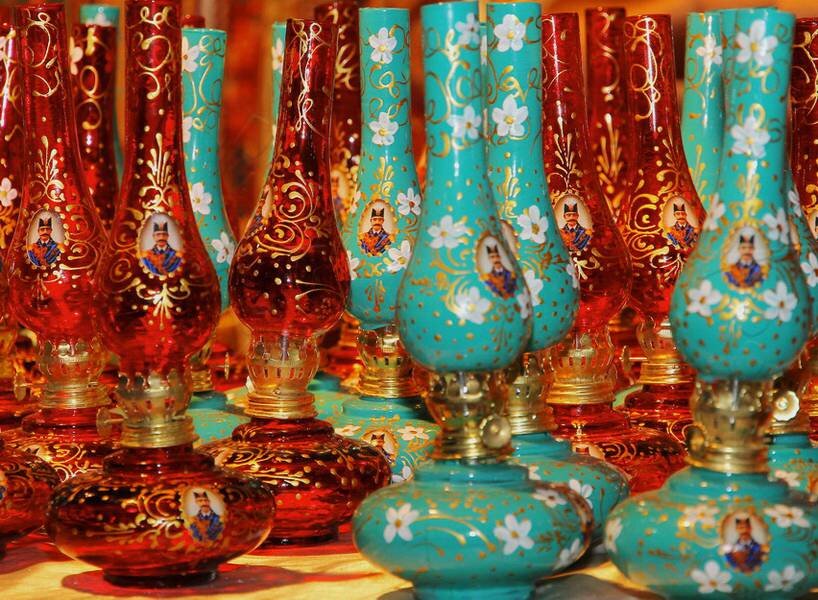Varamin opens house of handicrafts

TEHRAN– On Wednesday, a host of local officials and craftspeople officially inaugurated a house of handicrafts in Varamin, an ancient city situated about 30 km southeast of Tehran.
The house is expected to help encourage skills passed down from generation to generation in close collaboration with state-run institutes, crafters and private investors.
A selection of 170 works by local crafters has been put on show at the house aimed to serve as a comprehensive and all-inclusive center for specialized training in various fields of art, marketing, and organizing festivals and exhibitions.
Varamin is a hectic hub of glass production with 100 active workshops. The city produces some 70 percent of Iran’s glassware and crystal.
Its crafters apply all modern techniques in this field, and their handmade products are competitive with similar products imported from other countries such as Italy.
Iran ranks first globally in the number of cities and villages registered by the World Crafts Council (WCC) as China with seven entries, Chile with four, and India with three ones come next, according to the Ministry of Cultural Heritage, Tourism and Handicrafts.
With 14 entries, Iran ranks first globally for the number of cities and villages registered by the World Crafts Council, as China with seven entries, Chile with four, and India with three ones come next.
In January 2020, the cities of Shiraz, Malayer, and Zanjan and the village of Qassemabad were designated by the WCC- Asia-Pacific Region, putting Iran’s number of world crafts cities and villages from ten to 14. Shiraz was named a “world city of [diverse] handicrafts.” Malayer was made a global hub for woodcarving and carved-wood furniture. Zanjan gained the title of a “world city of filigree.” The village of Qassemabad, which is nationally known for its traditional costumes, was also promoted to a world hub of handicrafts.
Ceramics, pottery vessels, handwoven cloths as well as personal ornamentations with precious and semi-precious gemstones are traditionally exported to Iraq, Afghanistan, Germany, the U.S., the UK, and other countries.
AM
Leave a Comment